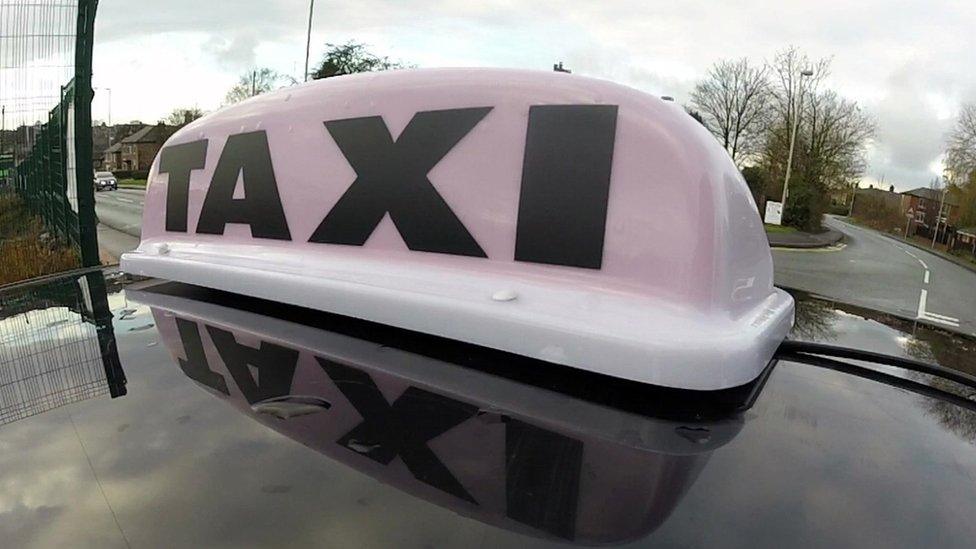Fears proposed taxi policy in Cheltenham will put drivers out of business
- Published

Drivers fear the draft policy could cause financial hardship and poverty
Taxi drivers in Cheltenham fear plans to replace the town's fleet with low emission and wheelchair accessible vehicles will put them out of business.
In March, the council consulted on a draft licensed vehicle emission and wheelchair accessibility policy.
The draft policy set out the council's approach to implementing a carbon neutral licensed fleet by 2030.
But Hackney carriage drivers said it would put "90% or more of the trade on universal credit".
They fear it will cause financial hardship and poverty especially now with domestic bills rapidly escalating, according to the Local Democracy Reporting Service.
One driver said: "But in the name of carbon targets, you don't care that you will be ruining decent people's lives do you?"
"No cab driver can afford £30,000 to £40,000 or more for an electric taxi.
'No taxis left'
"[There's] no infrastructure for charging, especially on taxi ranks let alone only a couple around the town, and if drivers live in a flat three stories up… Well unless they're going to run a 60ft extension lead out of the window?
"So it will be only a short time before the public suffer, because across the taxi and private hire trade there will be next to no taxis left to service the public."
Speaking at a cabinet meeting, customer and regulatory services cabinet member Martin Horwood said: "We have been undertaking consultation to make sure we are listening carefully to those who are affected or might benefit from this policy. And to make sure the steps we are taking are absolutely deemed reasonable.
"But there are some steps that just need to be taken in the short term to clarify some short term issues. They are to remove the most polluting vehicles from the fleet on the schedule that we envisaged, which is quite soon.
"They are also to clarify a particular technical detail about what counts as exceptional circumstances when a like-for-like replacement of a vehicle can be allowed."
The council has launched a further consultation to gain a clearer understanding of the issues.

Follow BBC West on Facebook, external, Twitter, external and Instagram, external. Send your story ideas to: bristol@bbc.co.uk , external